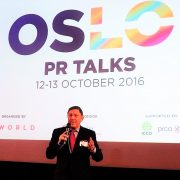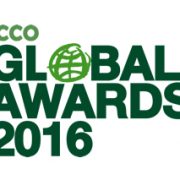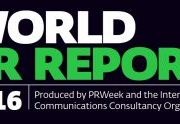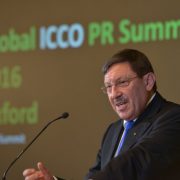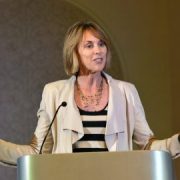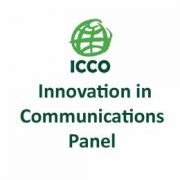Middle East & Africa – World PR Report 2016
Article by Loretta Ahmed, CEO, Middle East, Africa & Turkey, Grayling; Chair, PRCA MENA
The Middle East and Africa PR scene continues to thrive, albeit at a slower pace than in previous years. With oil prices languishing, government budget deficits and downward pressure on budgets continue.
The sector is diverse – ranging from small manager-owned boutiques through to the big global networks. This makes for a challenging environment in which to do business. With over 100 agencies in the UAE alone it is a procurement manager’s dream with the pricing element of pitching dominating decision-making more and more. However, the nature of our work is changing with most agencies now expanding their offerings and their talent mix. Video and visual-data content features heavily in all campaigns and the right talent to deliver relevant campaigns is more often appearing alongside the ‘traditional’ PR team as agencies work to offer integrated work to clients. Online advertising continues to experience high growth and measurement is back in the spotlight. With paid reach campaigns on social networks easier than ever to implement the ROI reporting is finally making real headway.
High mobile, broadband and social media adoption and penetration combined with high disposable incomes and predominantly young consumers in the Middle East makes it attractive for creative talent. Less risk averse than many parts of the world, the Middle East is coming of age and it is good to see more and more world-class work emanating from the region and being recognised in global award schemes.
Talent searches are a continual challenge for agency heads. More and more local talent is required and getting the mix of expat and local expertise right is key. With expats accounting for over 85% of the population in markets like the UAE and Qatar this part of agency management is never easy. Graduate recruitment is low and agencies are now focusing on developing their own talent far better than ever before in a concerted effort to retain their best people.
For Africa the challenges of corruption, transparency, bureaucracy and political uncertainty dominate the concerns of agency heads. As agencies in South Africa expand their networks across the continent the global networks are all planting their flags through a combination of start-ups and acquisitions. Combine this with the entrepreneurial mindset of the African business community and across markets like Kenya, Nigeria and Angola there is a real sense of excitement as clients in the public and private sector look to local agencies with local expertise to meet their communications needs. In Africa in particular, communications professionals are able to achieve CEO level client access at a far greater frequency than in other markets – while this comes with a far greater ability to influence decision-making it also creates the need for strategic communicators to feature heavily in the team mix – a challenge for agency heads looking to field local teams. Talent searches are a challenge with a much greater focus on local candidates required. To survive and thrive in Africa any agency worth its salt will have an intensive training and development programme in place.
With the downturn in the global economy, more and more global clients are looking to the Middle East and Africa as an important growth area – and this is matched by international candidates circulating their impressive resumes to agency heads across the region. Tempting though such candidates may be, they are not the solution for future growth and the best agency strategies are now focused around attracting and upskilling local talent.
Download a free online version of the ICCO/PRWeek World PR Report 2016 here.




